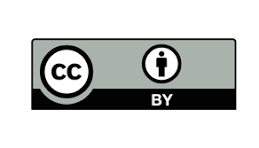DISLEXIA: Uma Maneira Diferente de Aprender
DYSLEXIA: A Different Way to Learn
Palavras-chave:
Dislexia, Inclusão, Aprendizagem significativa, Dyslexia, Inclusion, Meaningful learningResumo
Esse estudo tem como tema a dislexia, que vem sendo muito discutida no cenário educacional. Com base no verdadeiro histórico e conceito da dislexia, bem como as características e os sintomas que a acompanham, o artigo tem o objetivo de pensar na maneira como o disléxico pode ser incluído em sala de aula e da importância do Psicopedagogo para o seu acompanhamento. Para tanto, utilizamos a pesquisa bibliográfica na qual se constatou por meio desse estudo que inserir uma pessoa com dificuldade na leitura e na escrita no contexto escolar não é algo simples, entretanto, possível. Com um trabalho multidisciplinar, capacitações do corpo docente e seriedade dos profissionais envolvidos, pode-se propiciar ao aluno uma aprendizagem eficaz e significativa.
Abstract
This study presents the theme of dyslexia, which has been much discussed in the educational scenario. Based on the true history and concept of dyslexia, as well as the characteristics and the accompanying symptoms, the article aims to think about how dyslexia can be included in the classroom and the importance of Psychopedagogy for its accompaniment. To do so, we used a bibliographical research in which it is found through study that inserting a person with difficulty in reading and writing in the school context is not something simple, however, possible. With a multidisciplinary work, faculty skills and seriousness of the professionals involved, it is possible to provide the student with effective and meaningful learning.
Downloads
Downloads
Publicado
Como Citar
Edição
Seção
Licença
Revista Episteme Transversalis © 2010 por Centro Universitário Geraldo Di Biase está licenciada sob Creative Commons Atribuição 4.0 Internacional. Para visualizar uma cópia desta licença, visite https://creativecommons.org/licenses/by/4.0/















